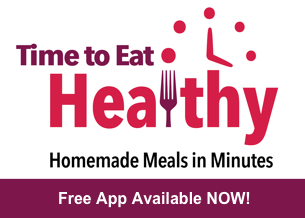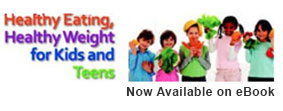Choline: A Natural Forgetfulness Cure?
Discover why choline is getting a lot of attention for being a memory booster.
By: Daniel Schmitt, Nutrition and Dietetics Student at Dominican University
How many times do you misplace your keys, wallet, or even cell phone? Well, if you are anything like me, this is a frequent occurrence. I am sure we all can agree that when this happens, frustration is soon to follow. Is there anything you can do to help boost your memory to make these scenarios less common? Well, choline has been getting a lot of buzz lately for possibly being a natural memory booster. Even though there has yet to be a definitive answer to whether choline improves memory, adding choline-rich foods to your diet through delicious and exciting new recipes is one way to obtain the possible memory boosting benefits.
What is Choline and How Much Do We Need?
Choline is a relatively new nutrient. In 1998, the US National Academies of Medicine Food and Nutrition Board identified choline as being essential for health. Our bodies produce small amounts of this vitamin-like nutrient associated with heart health, improved liver function, and athletic performance. Choline also plays a vital role in maternal and child health. Several studies have found that choline works with folate during pregnancy ensuring growth and development of the infant’s brain and central nervous system. However, when it comes to choline’s ability to improve memory and potentially slow age-related memory loss, it’s too early to tell. Since choline helps make the neurotransmitter acetylcholine which is involved in memory storage, some researchers theorize choline may help with memory retrieval. The research is limited, but one cohort study involving 647 men and 744 women between the ages of 36-83, did find that a higher choline intake was related to better memory performance.
Currently there are no recommended dietary allowances for choline, but the National Institute of Health does offer adequate intakes (AI) based on a variety of factors such as your age, gender, life cycle stage, and body’s ability to make choline.
| Age | Male | Female | Pregnancy | Lactation |
| Birth to 6 mos. | 125 mg/day | 125 mg/day | – | – |
| 7-12 mos. | 150 mg/day | 150 mg/day | – | – |
| 1-3 years | 200 mg/day | 200 mg/day | – | – |
| 4-8 years | 250 mg/day | 250 mg/day | – | – |
| 9-13 years | 375 mg/day | 375 mg/day | – | – |
| 14-18 years | 550 mg/day | 400 mg/day | 450 mg/day | 550 mg/day |
| 19+ years | 550 mg/day | 425 mg/day | 450 mg/day | 550 mg/day |
Source: https://ods.od.nih.gov/factsheets/Choline-HealthProfessional/
Food Sources of Choline
According to the most recent National Health and Nutrition Examination Survey, only about 8 percent of the United States adult population meets the AI level for choline. Choline can be found in a variety of foods and can even be taken in supplement form. But who wants to spend their hard-earned money popping pills that may or may not be helpful? Food is your best, safest, and tastiest option. Liver is by far the best source of choline and provides a whopping 356 mg of choline per 3-ounce serving. Eggs are also an excellent source and provide 147 mg of choline per one large egg, followed by soybeans providing 107 mg per ½ cup. What are some other sources of choline you ask? Use this table to help guide your food choices. You can also scan the nutrition facts on food labels for choline. The Food and Drug Administration (FDA) has established a daily value (DV) enabling manufactures to voluntarily label choline.
| Food | Portion | Amount |
| Beef Liver | 3 ounces | 356 mg |
| Egg – hard boiled | 1 large egg | 147 mg |
| Soybeans | ½ cup | 107 mg |
| Chicken Breast | 3 ounces | 72 mg |
| Fish – Cod | 3 ounces | 71 mg |
| Mushrooms – Shiitake | ½ cup | 58 mg |
| Potatoes – Red | 1 large | 57 mg |
| Quinoa | 1 cup | 45 mg |
| Beans – Kidney | ½ cup | 45 mg |
| Broccoli | ½ cup | 31 mg |
| Peanuts | ¼ cup | 24 mg |
| Rice – Brown | 1 cup | 19 mg |
Source: https://ods.od.nih.gov/factsheets/Choline-HealthProfessional/
The Memorable Take Away
Although choline has been getting a lot of attention for being a possible natural memory booster, it is important to remember that the research is not yet definitive. Eating a well-balanced diet with a variety of foods from a variety of sources is key to overall health and well-being. In the case for choline, luckily for us, there are numerous food sources to choose from.
Need some ideas and about adding choline-rich foods to your daily diet? Download the free app Eat Healthy Homemade Meals from the iTunes storeand Google PlayYou’ll find delicious and easy recipes like Eggs in a Basket New Orleans Shrimp Creole, and Grilled Pineapple Chicken Skewers.






